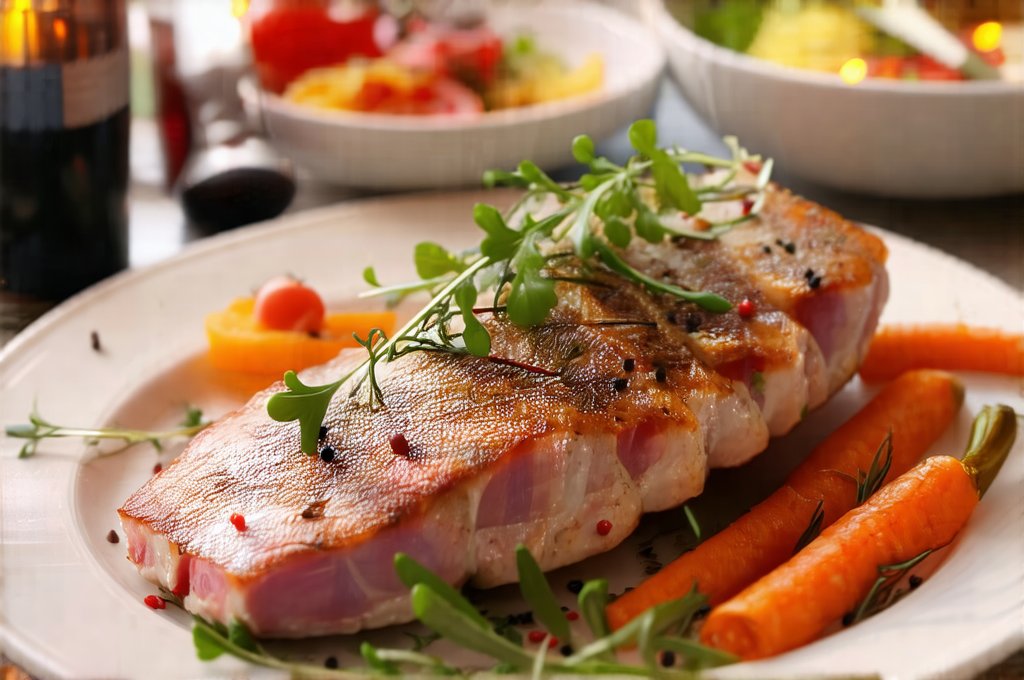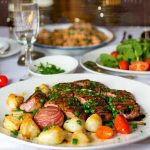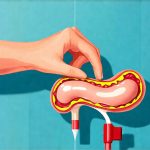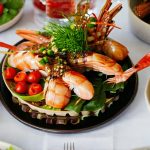Gastroesophageal Reflux Disease (GERD) can significantly impact social life, particularly when events revolve around food and drink. Many individuals with GERD experience discomfort – heartburn, acid reflux, bloating – after eating, making navigating celebrations, work lunches, or even casual gatherings a source of anxiety. It’s not about eliminating social interaction; it’s about proactively managing your condition so you can enjoy these moments without suffering afterward. Understanding your triggers and implementing strategies beforehand, during, and after events is key to maintaining both your health and your social connections. This article aims to provide practical guidance for safely enjoying food-centered social occasions while living with GERD.
The challenge lies in balancing the desire to participate fully with the need to protect your digestive system. It’s easy to feel self-conscious or restrictive, but remember that managing GERD is about empowerment, not deprivation. It’s a matter of making informed choices and advocating for your needs – both with yourself and with those around you. This isn’t simply about avoiding certain foods; it’s about building strategies to minimize symptoms so you can engage in life without constant worry or discomfort. The goal is to find a sustainable approach that allows you to enjoy social events and maintain your well-being. Learning how to eat peacefully can make this process less stressful.
Pre-Event Preparation: Setting Yourself Up for Success
Preparation is arguably the most important step in eating out safely with GERD. It’s far easier to manage symptoms when you’ve anticipated potential issues and taken preventative measures. This means thinking beyond just what you will eat at the event itself, but also considering your overall digestive health leading up to it. A little foresight can make a world of difference.
One critical aspect is mindful eating in the days before the social gathering. Avoid large meals or triggering foods that you know exacerbate your GERD symptoms. This reduces the likelihood of starting the event already experiencing discomfort, which makes managing further exposure much harder. Hydration is also vital; drinking plenty of water supports digestion and can help dilute stomach acid. Consider what type of event it is – a formal dinner demands different preparation than a casual cocktail party.
Furthermore, don’t hesitate to review the menu if available beforehand. Many restaurants now post their menus online, allowing you to identify potentially problematic dishes or plan your order in advance. If there’s no menu available, consider contacting the host or venue to inquire about food options. This isn’t being difficult; it’s demonstrating self-awareness and taking responsibility for your health. It also allows you to mentally prepare and choose healthier alternatives. Understanding food events with confidence can alleviate anxiety around these situations.
Navigating the Event: Smart Choices & Subtle Strategies
Once at the event, making informed choices is crucial. This means prioritizing smaller portions and opting for foods that are generally gentler on the digestive system. Avoid fried, fatty, spicy, or highly acidic foods as much as possible – these are common GERD triggers. Lean proteins, vegetables, and whole grains are typically better options. Don’t be afraid to ask questions about how food is prepared; simple requests like asking for sauces on the side can significantly reduce your risk of symptoms.
Beyond food selection, pay attention to your eating pace. Eating slowly allows your body to properly digest food and reduces the chance of overeating. Avoid lying down immediately after eating – gravity helps keep stomach acid where it belongs! If you’re at a buffet or potluck, scan all options before making your selections so you can make informed decisions based on what’s available. Remember that moderation is key; even healthy foods can trigger symptoms if eaten in excessive quantities. It’s also important to balance gut healing with the desire to socialize and participate.
It’s also okay to politely decline food offerings. You don’t need to explain your medical condition to everyone, but a simple “No thank you, I’m quite full” or “That looks delicious, but I’m trying to watch what I eat” is often sufficient. Don’t feel pressured to overindulge just because it’s a social occasion; your health is more important than appearing polite.
Dealing with Triggers During the Event
Even with careful planning, you might encounter triggering foods or situations during the event. Recognizing these triggers and having a plan for managing them can prevent symptoms from escalating. Common triggers include caffeine, alcohol, chocolate, mint, carbonated beverages, and large amounts of food. If you accidentally consume something that triggers your GERD, don’t panic!
- First, sip some water. This helps dilute stomach acid and may provide temporary relief.
- Second, if possible, discreetly step away from the immediate social setting for a few minutes to collect yourself. A brief walk can sometimes help with digestion.
- Third, avoid lying down or bending over immediately after experiencing symptoms.
Remember that having a small, portable antacid (with your doctor’s approval) can be helpful in emergencies, but it shouldn’t be relied upon as a substitute for preventative measures. It is simply a temporary fix and doesn’t address the underlying cause of the reflux. Knowing how to safely eat out can offer peace of mind, even in unpredictable situations.
Managing Social Pressure & Expectations
One of the biggest challenges with GERD at social events isn’t necessarily the food itself, but the social pressure to participate in certain eating behaviors. Many cultures associate celebrations with abundant food and drink, making it difficult to politely decline offerings or request modifications. It’s important to remember that your health is paramount and you shouldn’t feel guilty for prioritizing it.
Communicate your needs discreetly to close friends or family members who can offer support. Let them know what foods to avoid or how they can help if you start experiencing symptoms. Having an ally can make a big difference in reducing anxiety and making the event more enjoyable. Also, remember that most people are understanding and won’t judge you for taking care of yourself. How to eat with joy is possible even while managing dietary restrictions.
Post-Event Recovery: Minimizing Lingering Effects
Even after leaving the event, it’s important to continue prioritizing your digestive health. Avoid lying down immediately after returning home – stay upright for at least a few hours to allow gravity to help keep stomach acid in place. Consider taking a gentle walk to aid digestion. If you do experience lingering symptoms, avoid large meals and triggering foods the following day.
- Prioritize bland, easily digestible foods like oatmeal or rice.
- Continue staying well-hydrated.
- If your symptoms are severe or persistent, consult with your healthcare provider.
The goal is to give your digestive system time to recover and prevent a prolonged flare-up. Remember that managing GERD is an ongoing process, and consistent self-care is essential for maintaining both your health and your social life. It’s about finding the balance between enjoying life’s moments and protecting your well-being – a balance that is achievable with thoughtful planning and proactive strategies. If you find navigating these scenarios difficult, consider how to eat safely at buffets.


















